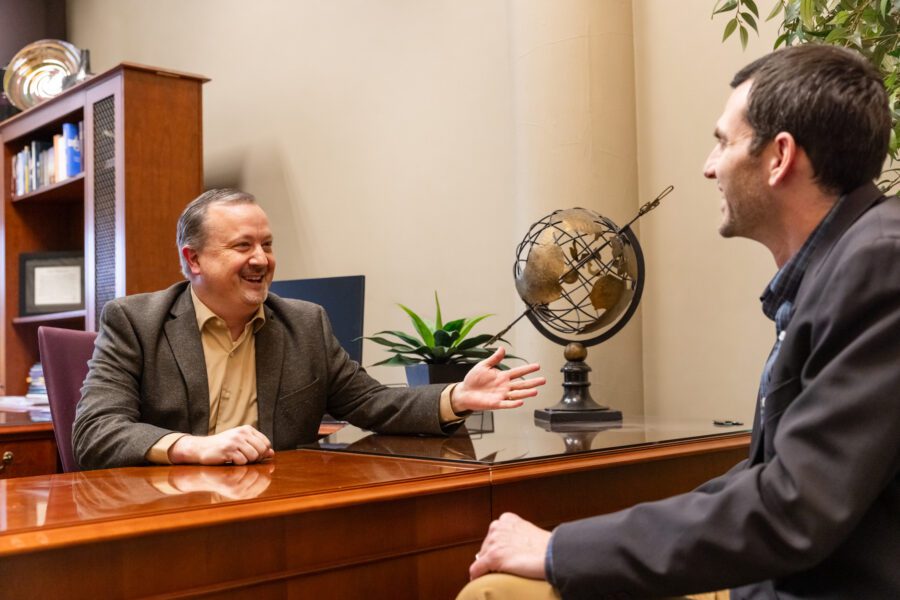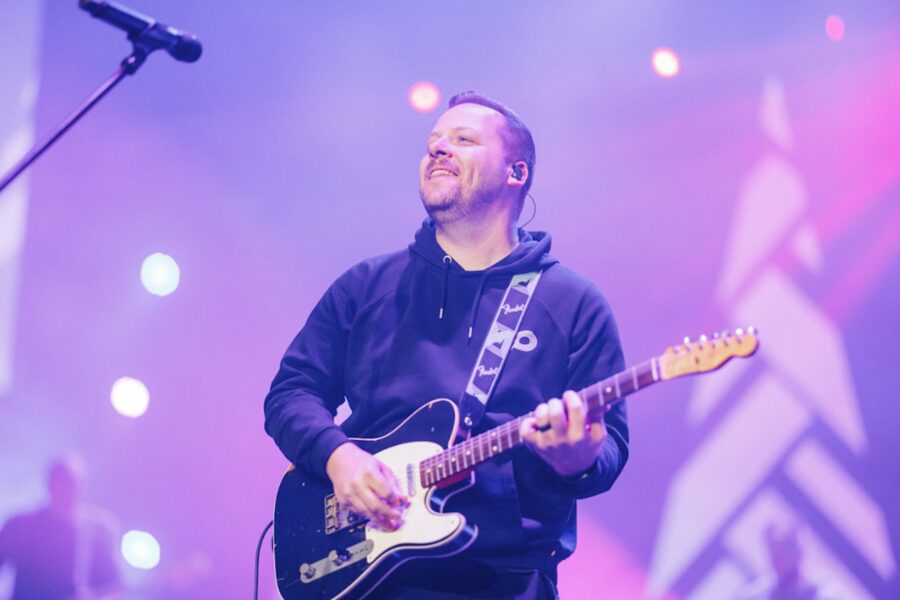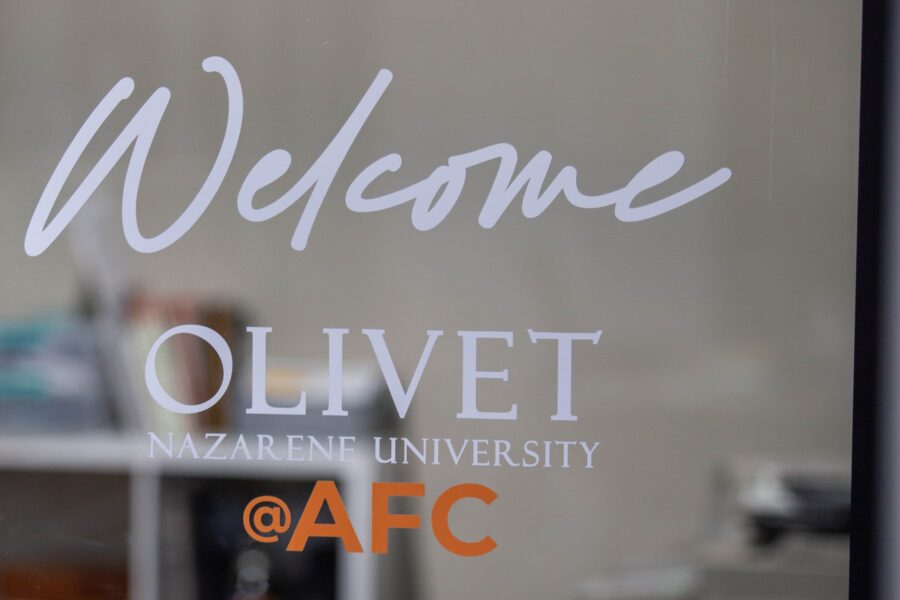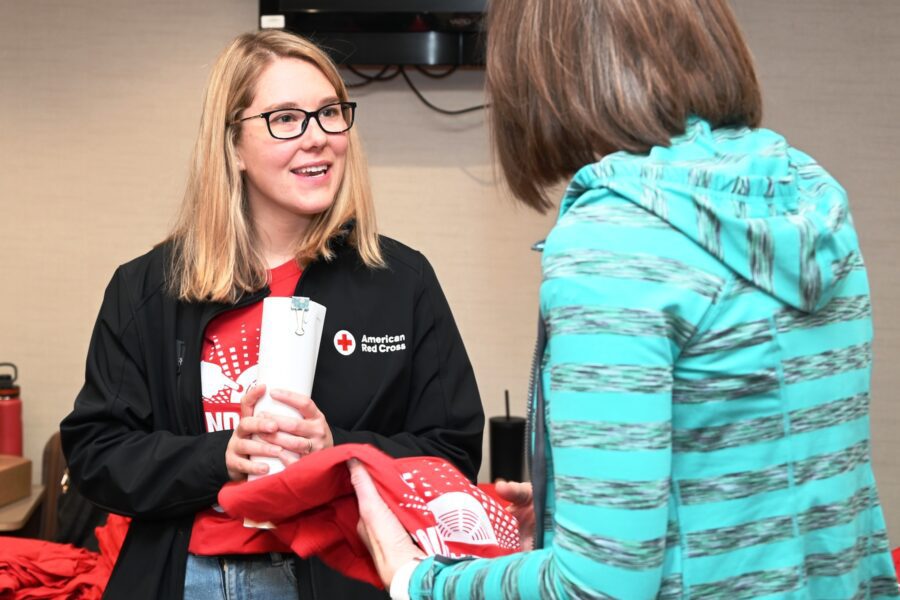
Every fall Olivet welcomes 30 freshmen into a new cohort of the University Honors Program. The unique design of the program gives students the chance to satisfy four of their general education outcomes through team-taught, discussion-based, interdisciplinary coursework. Since the inception of the program in 2007, 166 students have graduated with the designation of having completed the required Honors Program coursework and a faculty-mentored research project.
While some of the core Honors Program courses have evolved over time into new topics and formats, the fall semester course that every first-year student takes, Faith and Film, has remained true to its original theme: exploring what it means to be a human through the lens of visual storytelling.
“Courses like this sharpen students’ ability to form arguments, consider varying perspectives and learn to engage challenging ideas in an environment built on trust and respect,” says Dr. Stephen Case ’05, director of the Honors Program. “We are laying the foundation for what it means to be an engaged, critical Christian scholar in their discipline.”
Teaching a collegiate course as a subject-matter expert has its own challenges, but co-teaching it with a colleague representing a different discipline adds other levels of complexity. Such is the case for Dr. Charles Perabeau ’94, dean of the School of Theology and Christian Ministry, and Dr. Ryan Himes, professor in the Department of Biological Sciences. Now in their seventh year of co-teaching and their fourth time sharing responsibilities of the Faith and Film course, they share about what makes interdisciplinary study so beneficial — for students, faculty and society at large.
What is your approach to co-teaching?
Dr. Charles Perabeau: It has been remarkably natural. Ryan has an uncanny way of relating with students: He knows their names by the first class session. When we first taught together, we would meet to coordinate and plan for what each class would look like. It is quite vulnerable to teach with someone else because you are concerned with your own inadequacies, especially as you’re teaching something interdisciplinary. The Faith and Film course lends itself to discussion-based learning, which is exciting, but also leaves a lot of question marks — we do not always know where the conversation is going. Fortunately, our teaching styles are complementary.
Dr. Ryan Himes: Before we taught the first course, we barely knew each other. I probably would not have gotten to know Charles without this collaboration. He is good at stirring the pot in a way that makes students really reflect on the conversation. Personally, I have learned a lot about theology, church history and pedagogy from him, but, even more, I have developed a friendship. I really look up to Charles as a mentor.
How has teaching in the Honors Program influenced you as an academic?
Dr. Perabeau: Teaching in the Faith and Film course has forced me to think more clearly about how I articulate things. The students have given me plenty of theological fodder to mull over. I have gained a greater appreciation for interdenominational relationships and the broader Protestant tradition. I think it is important for students to watch us wrestle with concepts in real-time discussion with them.
Dr. Himes: My understanding of theology has deepened a lot over the years. Some of these theological themes help me keep the big picture in mind of what Christian education is supposed to be about. I am now more intentional about helping my students connect scientific content to the bigger picture. I often ask myself and them, “Why does this matter in the greater context of life?” I want to help future nurses and doctors learn to consider pathologies and address patient needs. But, beyond that, I hope they learn to treat the needs of the actual, holistic person.
What is the value of an interdisciplinary course like Faith and Film?
Dr. Perabeau: Life itself is interdisciplinary. Questions I raise in class seek responses to issues and complexities between differences of thought and lived experience. Think of a six-sided cube. With my own set of experiences, I just stare at one side. In this form of discussion-based learning, students grab my hand and journey with me to the other side of the cube. That stimulates a curiosity in me and, hopefully, in them as well. Olivet’s Honors Program is a microcosm of society, albeit from a Christian perspective. Students come in nervous and hesitant, but it is not long until they feel completely free to express what is on their minds and hearts. It is unique to have such healthy social discourse in a safe academic environment.
Dr. Himes: It is great to get perspectives from students who are studying a variety of topics. For example, this year’s cohort represents 22 unique areas of study. Teaching in the Honors Program keeps my job very interesting, as I get to engage in different facets of life through the students. In class we discuss enduring global issues, and, despite the potential for conflict, students have always handled tough topics with a lot of grace, thoughtfulness and humility. It is the mission of Olivet, “Education With a Christian Purpose,” at work.
From Olivet The Magazine, On Purpose – Winter 2024. Read the full issue HERE.





